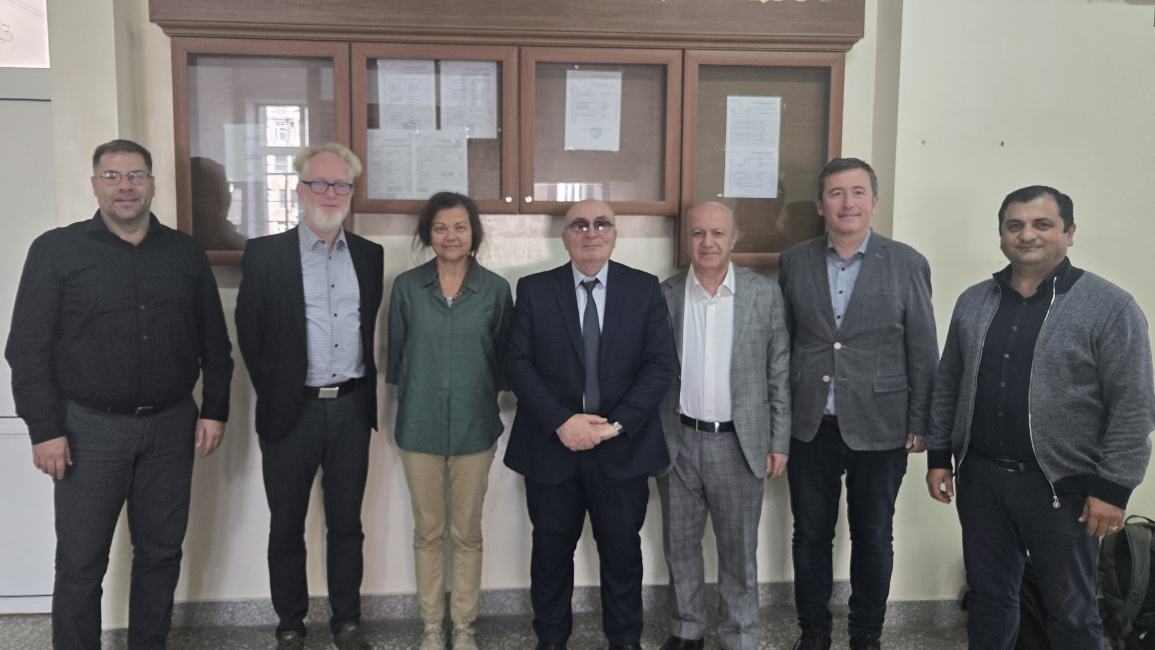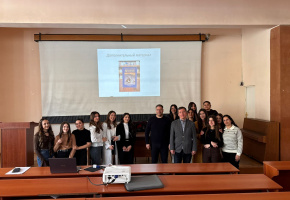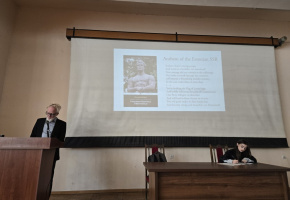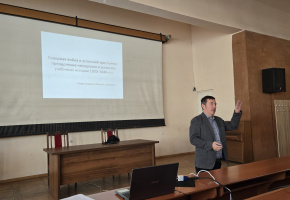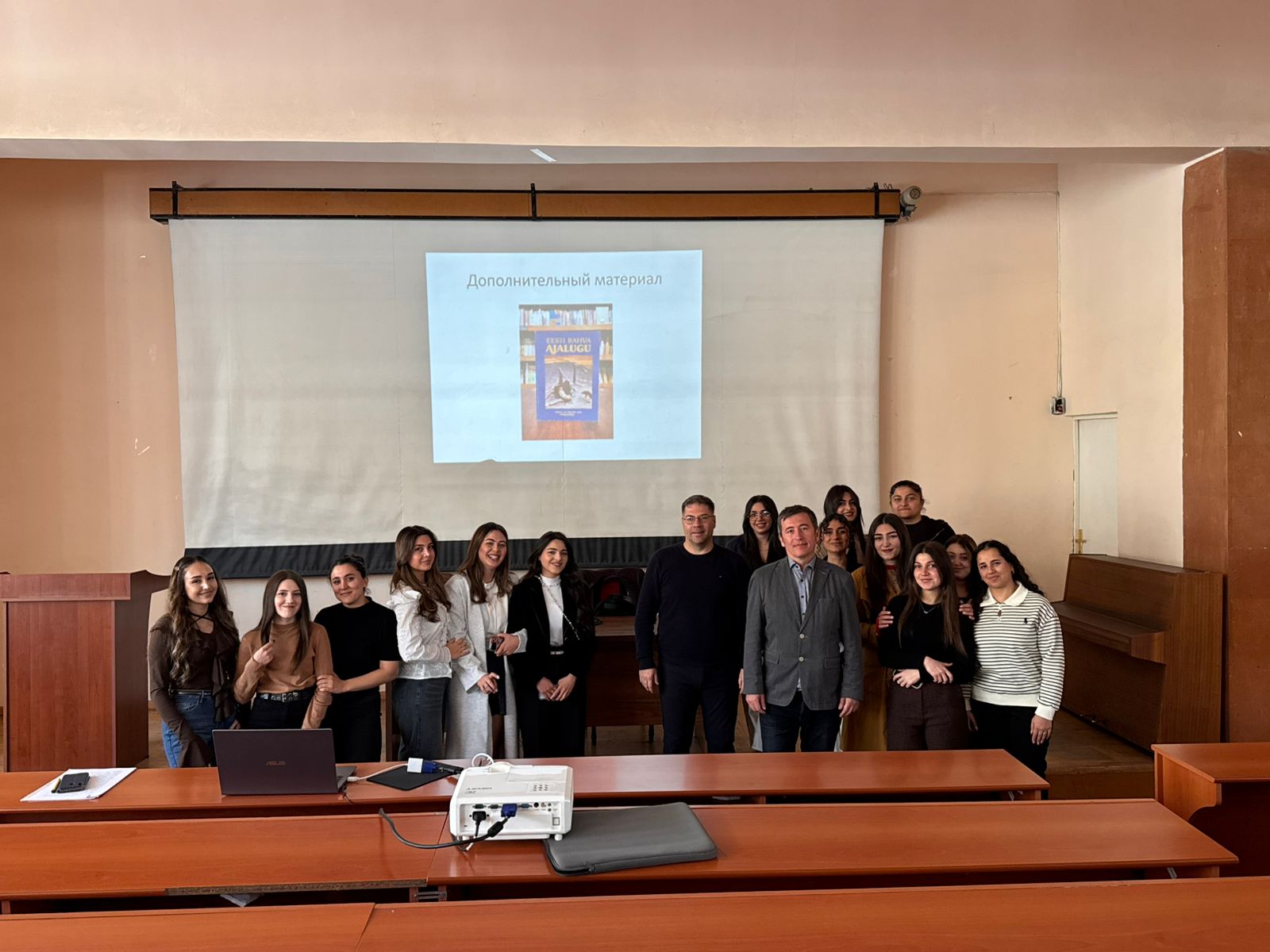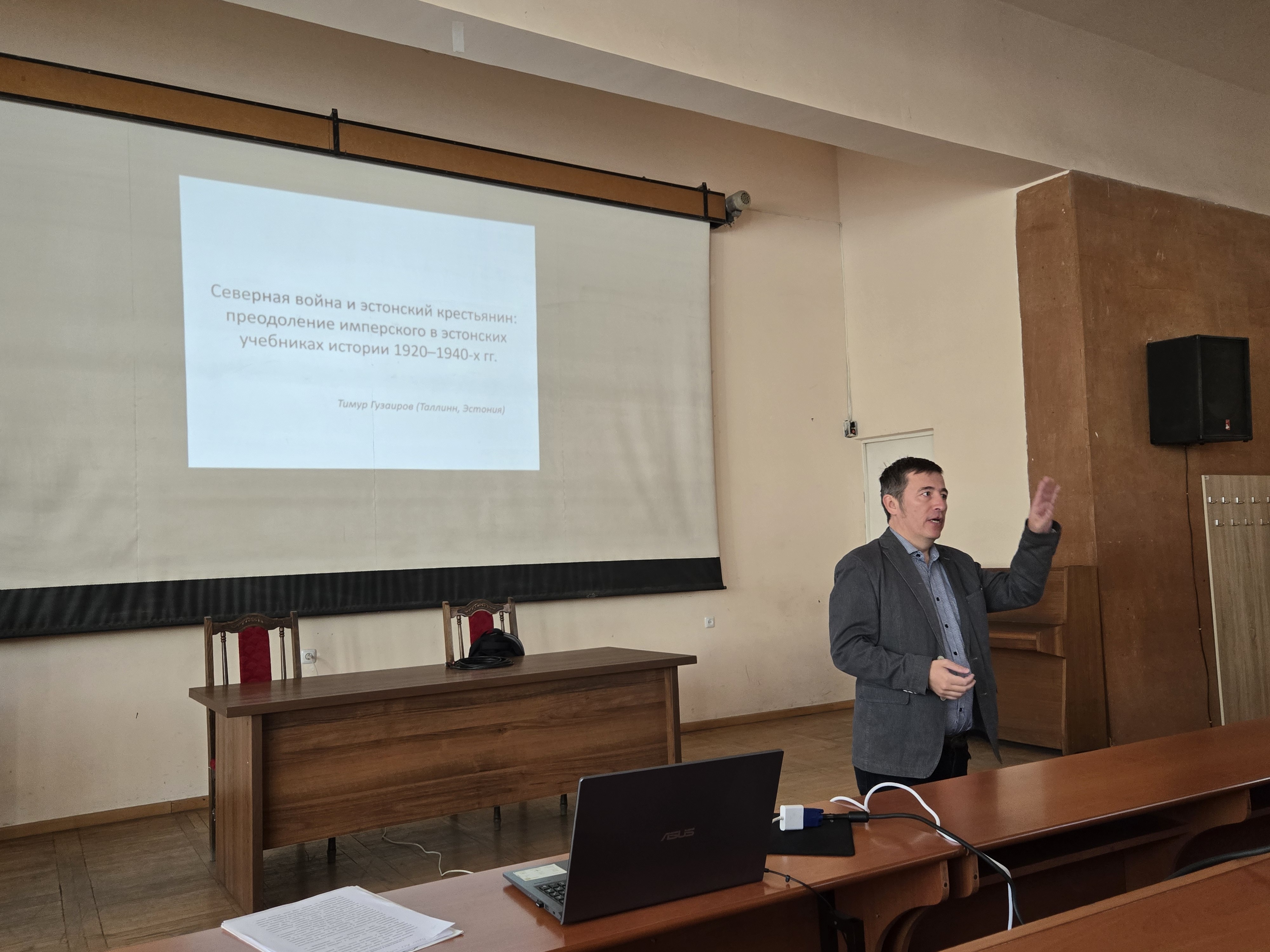Professor Karsten Brüggemann and Dr. Timur Guzairov from Tallinn University (Estonia) delivered lectures within the framework of the "History of Armenian Literature" master's program at the YSU Faculty of Journalism.
On November 3, 2025, Dr. Timur Guzairov (Tallinn University, Estonia) visited Yerevan State University. In his lecture, Dr. Guzairov presented a talk titled “The Northern War and the Estonian Peasant: Overcoming the Imperial in Estonian History Textbooks of the 1920s and 1940s.” The scholar proposed viewing history textbooks not merely as educational tools, but also as channels of communication between the political “top” and the popular “bottom,” serving as mediators between power, ideology, and collective memory. School textbooks have long been a subject of public debate in the media and on social networks, as they serve as platforms for shaping and regulating political, social, and cultural memory. Dr. Guzairov analyzed several school textbooks, including Estonian History, Modern History, and General History for the 9th Grade, to demonstrate how they constructed the images of Russia, the empire, and the “Other.” During the interwar period (1920s–1940s), Estonia sought to establish its own national identity, and textbooks became a key arena for this process. Dr. Guzairov also referred to the work of Finnish historian Arno Rafael Söderberg (1922), “The Story of Russian Prisoners of War about the Battle of Erastvere.” This source, introduced into Estonian academic discourse, helped to view the war through the eyes of “small” rather than “great” nations.
The next day, on November 4, 2025, the renowned professor of Tallinn University’s School of Humanities, Dr. Habil Karsten Brüggemann, delivered a lecture at Yerevan State University within the framework of the Republic of Armenia’s research project No. 24SSAH-6B014. The professor’s lecture addressed the fascinating topic “Soviet Internationalism and Estonian Nationalism.” Drawing on Estonia’s historical experience, cultural symbols, and literary figures, the presentation highlighted the paradoxes of belonging and autonomy under Soviet rule. The main argument concerned the duality of the Soviet project: on the one hand, it sought to strengthen transnational solidarity under the banner of socialist internationalism; on the other, it fostered the renewal of national identity. The cultural symbols of Estonia, in particular, the national epic Kalevipoeg, became instruments of both integration and resistance, serving as markers of identity that the Soviet regime attempted to appropriate. The national narrative and Kalevipoeg by Friedrich Reinhold Kreutzwald (19th century) were essential parts of his lecture.
